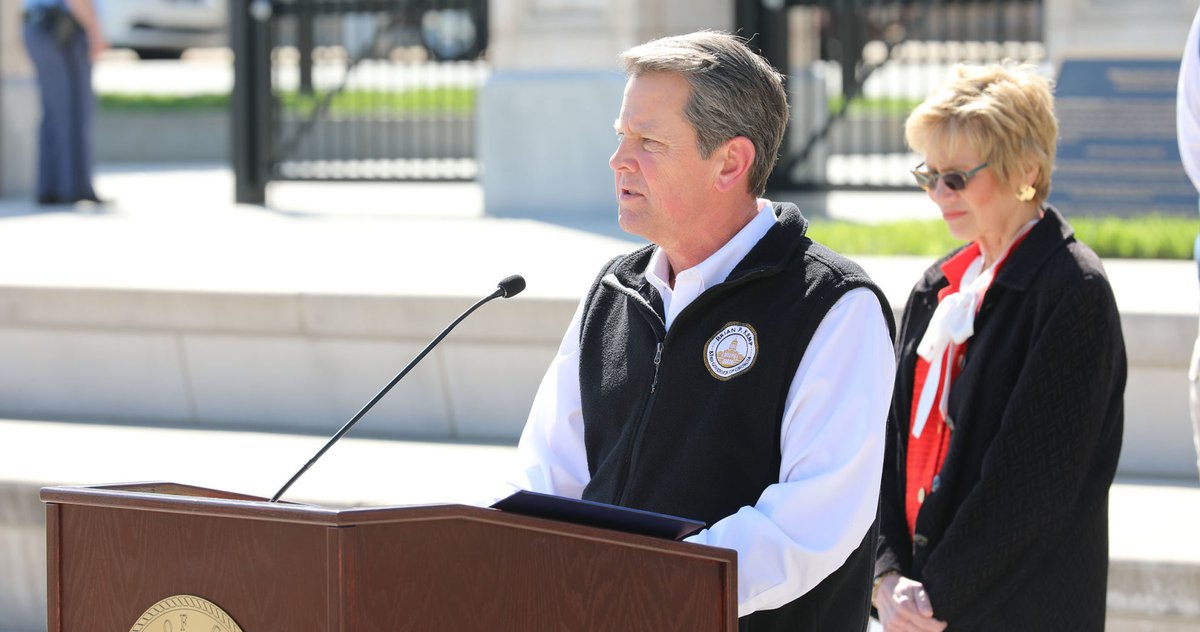Gov. Brian Kemp announced Thursday that anyone in Georgia can be tested for coronavirus after expanding the criteria beyond only those with symptoms, health care workers, the elderly and the chronically ill.
Shortages in testing supplies like nasal swabs and diagnostic kits had previously forced state health officials to limit tests to groups most at risk of contracting the virus.
But help from universities, corporations and the federal government has boosted the state’s testing capacity in recent weeks ahead of a push for contact tracing to head off local outbreaks before they start, the governor said at a news conference Thursday.
“Let’s build on this momentum in the days and weeks to come,” Kemp said.
As of late Thursday afternoon, around 31,000 people in Georgia had tested positive for COVID-19, the disease caused by the novel strain of coronavirus that sparked a global pandemic. It had killed 1,340 Georgians.
Testing is a critical part of the push to curb the virus’ spread now that previously shuttered businesses have started reopening in Georgia and the state’s shelter-in-place order has largely been lifted.
Around 110,000 tests were done in Georgia in last two weeks, said the state’s public health commissioner, Dr. Kathleen Toomey. That accounts for more than half of the total roughly 217,000 tests take through Thursday afternoon.
Identifying positive cases quickly will allow health officials to implement contact tracing, a meticulous process that identifies the web of interactions that an infected person has with others.
Toomey said Thursday the state has brought on about 550 workers and students to perform contact-tracing tasks, marking about half of the full 1,000 tracers that are needed.
“We want to be able to identify everyone in the community who may be infected, whether symptomatic or not, so that we can ensure we can stop that spread,” Toomey said.
As the outbreak in hard-hit Albany starts to ease, health officials are now turning their attention to the Gainesville area in Hall County where an outbreak affecting poultry workers in the Latino community is occurring.
Georgia Insurance Commissioner John King, who was born in Mexico and is bilingual, said Thursday he is working with local Hall County leaders to broadcast Spanish-language messages on social distancing and protective measures to the community.
“This task force will focus on communicating with them in their own language,” King said.
Beyond the Gainesville area, elderly care facilities continue to be a top priority for health officials and members of the Georgia National Guard, which has been busy disinfecting the state’s 790 long-term care facilities over the past month.
Kemp said Thursday elderly residents in those facilities have accounted for more than half of all deaths in Georgia caused by the virus to date.
Meanwhile, the federal government is poised to send 210,000 test swabs to Georgia in weekly shipments throughout May, said the state’s emergency management director, Homer Bryson.
The governor also touted efforts by companies like CVS and Walmart to set up testing sites, as well as a screening app run by Augusta University to connect patients with doctors via online video feeds.
So far, more than 14,400 people have been screened on the app and 8,300 referred for testing, said Augusta University President Brooks Keel.
Also Thursday, the governor batted down concerns over some forecast models indicating Georgia could see a spike in positive cases and deaths from coronavirus, following his decision last week to start lifting mandatory statewide business and social restrictions.
“I think it’s important for Georgians not to get scared or panicked because someone has a new model that says something,” Kemp said.
Kemp stressed health officials are seeing a steady decrease in the percentage of positive COVID-19 cases compared to testing amounts, indicating the rate of infection appears to be slowing. He urged Georgians to keep wearing masks in public and to avoid large gatherings.
The governor also highlighted the dire economic downturn spurred by business closures and stay-at-home habits, which has sent tax revenues plummeting and prompted the need for deep cuts in the state’s $27 billion budget.
“We must fight for both the public and economic health of our state,” Kemp said.




